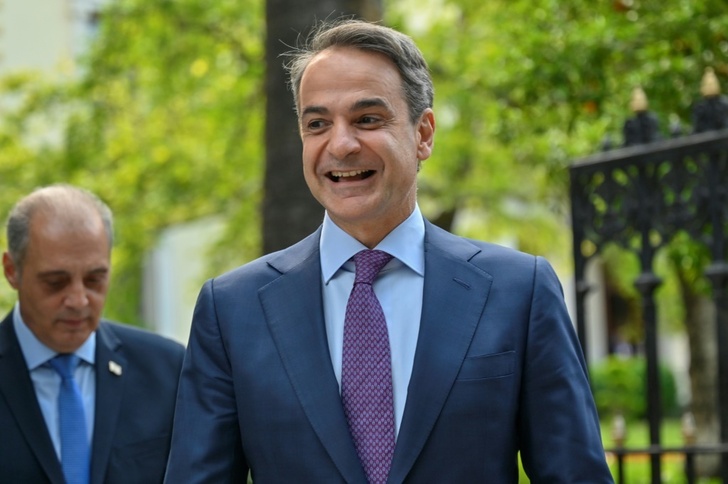Greece will hold fresh elections on June 25, the president's office said Monday as Prime Minister Kyriakos Mitsotakis seeks to consolidate a May 21 win that left him short of a parliamentary majority.
"New elections will be held on June 25," a presidential decree said, after Mitsotakis's conservative New Democracy party had its best result since 2007 with 40.8 percent of the vote.
It was a win over the leftist Syriza party of former premier Alexis Tsipras by more than 20 points.
Despite the landslide victory, Mitsotakis was still five seats short of being able to produce a single-party government in the 300-deputy parliament -- and declined the option of forming a coalition.
Under a new electoral law that comes into play in the next ballot, the winner can obtain a bonus of up to 50 seats, facilitating the goal of securing a majority of at least 151 lawmakers.
The stakes could not be higher for Tsipras, the former radical who took on Greece's EU-IMF creditors whilst in power in 2015 and nearly crashed the country out the euro in the process.
The 48-year old engineer has now lost four straight elections at local, national and European level to former McKinsey consultant Mitsotakis, 55.
After the June ballot, local elections are also to be held in October, leaving precious little time for Tsipras' leftist Syriza party to recalibrate its approach.
Tsipras is also under pressure from the socialist Pasok-Kinal party of 44-year-old former Eurodeputy Nikos Androulakis, which is making a revival nearly a decade after being discredited during the country's debt crisis.
Tsipras last week said he takes "full responsibility" for the defeat, which he called a "painful shock", while vowing to prevent the formation of a right-wing government in the next round.
In power over the last four years, Mitsotakis -- a scion of one of Greece's most powerful political families -- steered the country through the pandemic which devastated its vital tourism industry.
Mitsotakis' term was blighted, however, by a wiretapping scandal as well as a train crash that killed 57 people in February.
The government initially blamed the accident -- Greece's worst-ever rail disaster -- on human error, even though the country's notoriously poor rail network has suffered from years of under-investment.
Nevertheless, neither the accident nor the scandal appears to have dented support for his conservatives -- who scored a far bigger win than that predicted by opinion polls ahead of the vote.
Until the June 25 election, Greece is under a caretaker government headed by a senior judge as interim prime minister
hec/yap/jph/cw
© Agence France-Presse
Your content is great. However, if any of the content contained herein violates any rights of yours, including those of copyright, please contact us immediately by e-mail at media[@]kissrpr.com.
Source: Story.KISSPR.com

